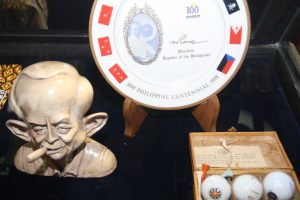Fidel Ramos, the president of the Philippines from 1992 to 1998, died on July 31. He was 94.
Ramos was one of the military generals who enforced Martial Law in the 1970s. Despite being a relative of former President Ferdinand Marcos Sr., he switched sides in 1986, which eventually led to the peaceful People Power uprising. After the downfall of the Marcoses, Ramos served in the Cory Aquino cabinet and defended the new government from at least nine coup attempts. He became president even though he only got around 20 percent of the votes.
What can incumbent President Ferdinand Marcos Jr. learn from the Ramos presidency?
Despite a weak mandate resulting from an election victory based on a mere plurality of votes, Ramos pursued tactical alliances with various political forces. He granted amnesty to military and communist rebels, repealed the anti-subversion law, and maintained a robust relationship with opposition parties.
Marcos Jr. may think his situation is different because of his huge electoral lead but it doesn’t mean his presidency will remain stable. On the contrary, his call for unity is perceived by many to be insincere because of his family’s continuing refusal to acknowledge the atrocities committed during the Martial Law years. Marcos Jr. cannot effectively lead as long as the demands for accountability and justice are not substantially addressed. He and his family will only cause disunity and divisiveness if they continue to insist that the dictatorship did not undermine democracy.
Ramos was in a somewhat similar predicament at the start of his term. Aside from being a minority president, his detractors accused him of being responsible for human rights violations during the Martial Law era. His political party initially only had a few members in Congress and local government units. He was a Protestant leader in a country with a Catholic-majority population. Very few expected him to finish his six-year term.
But Ramos defied expectations by implementing policies that astounded both his supporters and critics alike. This was most evident in his legacy as a peace builder. Instead of waging an all-out war against communist, military, and Muslim rebels, he offered amnesty and agreed to restart the peace process. Looking back, it was impressive that peace negotiations advanced during the presidency of Ramos, a former military general, and Martial Law implementer.
It was during his time as president that a peace agreement was finalized with the Moro National Liberation Front (MNLF), which was the biggest Muslim movement fighting for self-determination in Mindanao. It would take another two decades for the government to sign a peace deal with another Muslim movement, the Moro Islamic Liberation Front (MILF).
As defense secretary of the Cory Aquino administration, Ramos was seen as a spoiler of the peace negotiations with the communist movement, which were initiated in 1986. Surprisingly, the peace talks flourished during his term as president which even led to the successful negotiation of the landmark Comprehensive Agreement on Respect for Human Rights and International Humanitarian Law, or CARHIHL. Peace advocates continue to cite the signing of CARHIHL as proof that negotiating the peaceful political settlement of Asia’s long-running armed communist movement is possible.
Marcos Jr. ran on a platform of rejecting proposals to revive the peace negotiations with armed communists. Since becoming president, he also has remained silent about the finalized peace treaties with the MNLF and MILF. Marcos Jr. is never expected to negotiate with these groups. But perhaps he can emulate Ramos by making a surprise move that will certainly spur intense debates but has the potential to deliver unprecedented political gains in the long run.
It is noteworthy to mention that the armed communist movement was established during the early years of the presidency of Marcos Sr. It will be a symbolic victory for Marcos Jr. if the armed conflict ends during his term. So far, the doctrine of launching full-scale offensives against communists is dominant in the bureaucracy. Marcos Jr. should consider learning from the maverick approach made by Ramos.
As president, Ramos was credited as an economic reformer who boldly promoted liberalization and market deregulation policies. This became difficult to flaunt as an achievement in the aftermath of the 1997 Asian Financial Crisis. Despite registering supposedly strong economic fundamentals, poverty and inequality continued to plague the country. As dissatisfaction worsened, voters supported the opposition in the 1998 election which reflected the decline of Ramos’ popularity.
Again, Marcos Jr. can benefit from recalling the last few years of the Ramos presidency. During his recent state of the nation address, Marcos Jr. unveiled his economic platform which echoed the development plans of his predecessors. He also set ambitious goals for the economy, which is similar to what Ramos did when the late president vowed to make the Philippines a newly industrialized country through his “Philippines2000” program.
Marcos Jr. should not repeat the mistakes of Ramos, who embraced free trade policies without providing adequate safety measures for local producers. He should ensure that as the economy becomes more connected to global trade, the foundations of local production should not be made easily vulnerable to external shocks. Otherwise, even his reputable economic team cannot save him from a public backlash if the fallout from a regional or global crisis will cause irreparable damage to local jobs and livelihoods.
Tributes poured in after the death of Ramos was reported in the news. Marcos Jr. may well deliver the best compliment yet by replicating the achievements and avoiding the failures of the late president.
































